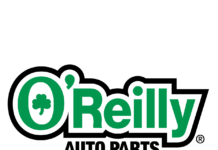
(By Loyd Ford) How many ways can a prospect say no? Well, it depends, doesn’t it?
In fact, one thing you know in sales is that you will continuously get a no or certainly objections.
But what are the most common objections you can work to master?
Sales Objection #1: “I don’t understand.”
There are a lot of things that can lead to not understanding your solution for their problem. That is what you are doing, right? Coming with a solution. Be careful to plan ahead and focus on communicating with simplicity your solution to the problem the client most wants to solve. Of course, this takes a lot of prep work to know what they are focused on, but prep is perhaps one of the pillars of great sellers. Remember: It can be easy for a prospect to be confused about what you mean, what your product does, or they certainly could be confused by something they have heard from a past client of yours or a competitor. Take nothing for granted in your communication and you’ll jump right over this objection.
Almost any seller would be tempted to tell a prospect they are wrong. Avoid this temptation. Focus on the facts and stay close to what you know the prospect wants keeping your facts simple and focused on showcasing your solution.
Objection #2: “It’s price.”
One of the most common objections in this category is price. Your price is too high. When most reps hear this, some will absolutely panic. Many are likely to move rapidly to negotiate as soon as they hear a price objection. Call this one of the biggest reasons to do your prep ahead of time and to know your customer and their need. We talk about this with clients a lot: People don’t care about price if they see the value. If you have a price objection, you have only one of two things: A. A very cheap client who wants a deal no matter the value proposition or B. A client who has not seen you build the value into your solution.
Sales Objection #3: “I don’t like your company” or “I don’t like X about your company.”
This is one of the toughest things a sale rep can face, but you should consider it a challenge and immediately recognize that this is the time to shift or reframe the objection around minimizing the challenge and how it would impact “this relationship” and “solution.” Focus attention again as immediately as possible on what the client has already agreed to in your solution and sell yourself as the relationship. In other words, you will make sure things go well.
Sales Objection #4: “I just don’t care.”
You’ve done your prep and you’ve done the work needed, but your prospect says something like “I don’t see the need for this (product).” This is truly hardcore, but it isn’t the end of the world. They don’t believe that you have something that works for them, or they are happy with their current relationship to try to solve this problem.
You better be armed with questions that may help the potential client see the holes in their current solution that can be solved with your product.
No product is perfect. I didn’t just say your product isn’t perfect. I said your competitor’s product isn’t perfect either. That’s fuel to overcome an objection they are fine where they are if you can prove they can do better.
If you don’t allow yourself to be sold on the objection and you have prepared great questions, you will have an opportunity to turn the “I don’t care” objection into a buy.
Practice Makes Mastery
What can be done to help entire sales teams rise in their own mastery of objections? Sales managers should be encouraged to run exercises in sales meetings that support mastery of objections and the power of continuing, especially with strategies that keep potential clients talking about the important pain points they have in their business and relationships with customers today. You generally can be more successful doing this is you are asking questions and you truly have done the work to prep for this potential client.
My dog Spider-Man helps me understand overcoming objections all the time. He is always closing and never just accepts your no. In fact, I’m not sure he can hear it, but I will share one more thing about my dog: He watches and listens to his “client” carefully. It’s true he can’t talk, but he is a very impactful reactor to what he sees and hears. You learn to do this well and you will overcome objections and win over more and more objections. That will make you a master seller.
Loyd Ford is president and chief strategic officer at Rainmaker Pathway Consulting Works (RPC). Reach Loyd at 864.448.4169 or






One of the most typical objections in this area is pricing.